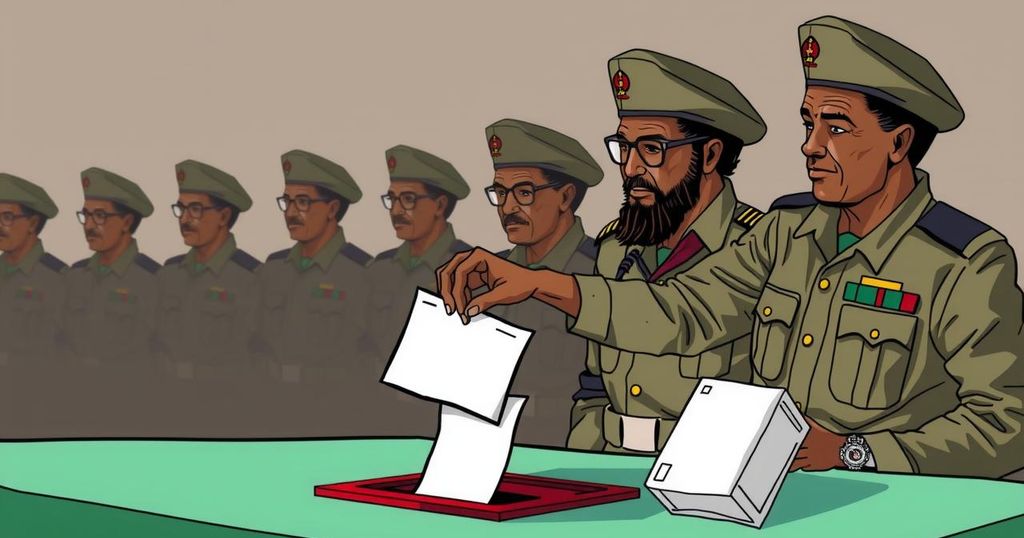Chad’s Parliamentary Elections: Low Turnout Amid Opposition Boycott

Chad held parliamentary elections marked by low voter turnout and a boycott by the opposition. The elections signify an end to a three-year military transitional period, with accusations of electoral fraud against the ruling junta. Despite the elections being described as a step towards decentralization, the lack of opposition voices raises concerns about the legitimacy of the process.
On Sunday, Chadians participated in parliamentary elections characterized by a notably low voter turnout. This electoral process, marking the end of a three-year transitional rule, has been boycotted by the main opposition factions, which allege a lack of credible oversight by the authorities. The elections signify the first parliamentary vote in over a decade for Chad, following a disputed presidential election earlier this year in which Mahamat Idriss Deby, the military junta leader, maintained power after succeeding his late father, Idriss Deby Itno.
Despite officially concluding late Monday, results from the parliamentary elections will not be disclosed for approximately two weeks. Deby stated that the elections will usher in a long-anticipated era of decentralization for the nation. With a registered electorate of at least eight million, citizens are selecting representatives for the newly formed National Assembly, as well as provincial and municipal positions.
However, polling stations in the capital, N’Djamena, reported minimal voter presence, indicating widespread apathy among the electorate. Over ten opposition parties, most notably the Transformers party led by Succes Masra, have condemned the elections as disingenuous and an attempt for Deby to solidify a dynastic rule. Fearing electoral manipulation, Masra advised potential voters to abstain from participating in the process altogether.
This election arrives during a tumultuous time for Chad, grappling with security threats from Boko Haram and a significant shift in military relations with France. Political analyst Mahamat Oumar Adam emphasized that the primary concern surrounding the elections revolves around ensuring a genuine democratic transition rather than an extension of military governance. Adam criticized the absence of opposition representation in these elections, which he perceives as a significant flaw in the democratic process currently at hand.
Chad has undergone decades of authoritarian rule since its independence from France in 1960, with power remaining largely unchallenged due to a lack of free and fair electoral practices. Following the death of former president Idriss Deby Itno in April 2021, his son Mahamat Idriss Deby assumed leadership of a military junta intending to transition toward a civilian government. However, allegations of electoral fraud and a lack of genuine political opposition have perpetuated skepticism regarding the integrity of the current electoral processes, culminating in the recent parliamentary elections, which were boycotted by many opposition parties.
The parliamentary elections in Chad reflect a complex political landscape where significant opposition participation is lacking, raising questions about the legitimacy and credibility of the electoral outcome. Low voter turnout signals disillusionment among the populace, while the military government’s hold on power remains contentious. Continued attention to the unfolding political situation in Chad is critical as the nation navigates its desire for a true democratic transition amidst prevailing security challenges.
Original Source: apnews.com








